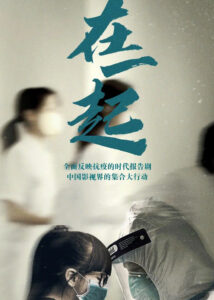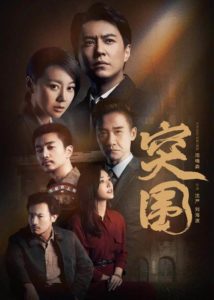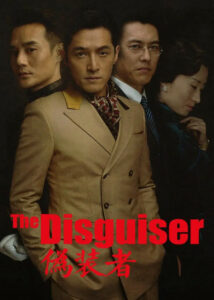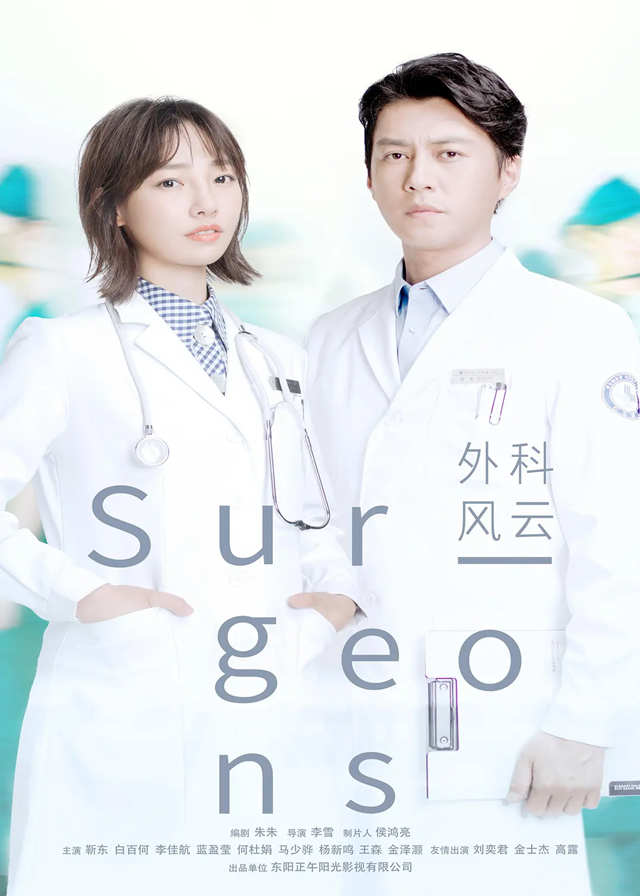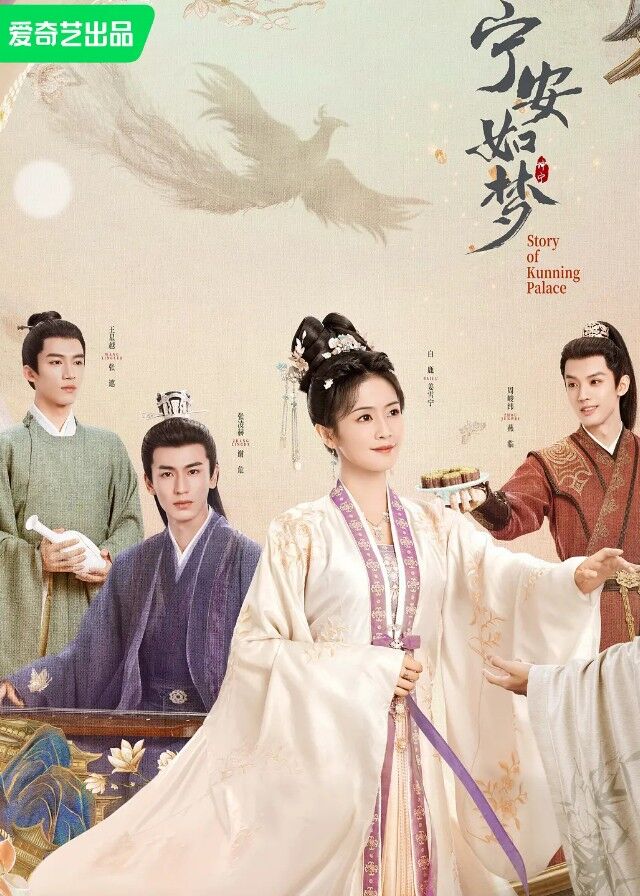Surgeons Episode 37 Recap
> Surgeons Recap
Fu Bowen had secretly kept the original penicillin procurement form from Zhuang Shu's mother's case. His initial intention was to use it as leverage against Xiu Min Qi should their interests ever conflict. However, the document remained unused, even after Fu Bowen became the Dean of Renhe Hospital. He had placed it behind a painting titled "Initial Intention," which served as a constant, painful reminder of the "very shameless deed" he had committed.
Zhuang Shu acknowledged Fu Bowen's remorse but found it insufficient. He pressed Fu Bowen, asking what he planned to do next to publicly announce the truth and clear his mother's name. Fu Bowen confessed that he could do nothing. He had visited Xiu Min Qi, who, as expected, refused to clarify the matter.
The original procurement form was useless, Fu Bowen explained, because no one could prove its authenticity, as the fabricated form had already been sealed inside the official case file as evidence. Zhuang Shu then asked about the pharmacy head, Cao Guang Yi. Fu Bowen recounted that Cao Guang Yi had been coerced into fabricating the form and had subsequently felt such profound guilt that he resigned in 1994 and migrated with his family to Canada, losing contact ever since.
Fu Bowen believed that Cao Guang Yi always felt guilty about the matter and might help clear Zhuang Shu's mother's name if found, but acknowledged that after years of no communication, no one knew if he was still alive. Zhuang Shu, holding the original form, questioned the purpose of receiving it now, if it was simply because Fu Bowen finally had a conscience, asking, "What's the use of this?"
Fu Bowen expressed his deep regret for two things during his career: taking credit for Zhuang Shu's achievement in the lung transplantation (which he had already fully confessed), and the incident involving Zhuang Shu's mother. He bowed profoundly, apologizing to Zhuang Shu and his mother. Zhuang Shu vehemently rejected the apology.
He pointed out that his mother had paid with her life for the incident, while Fu Bowen and Xiu Min Qi, the instigators, remained "respectable experts in the medical world," their "legacy. . . will continue." In stark contrast, his mother "will forever be an irresponsible nurse that caused the death of a patient," and Lu Zhong He's family would continue to believe his mother's mistake caused their tragedy.
He questioned if such a "powerless remorse" could truly atone for their sins or "make up for the hurt that befell the two families." Fu Bowen understood that his repentance would never earn Zhuang Shu's forgiveness. He claimed that he had done what he could later to prevent similar incidents, specifically regarding the hypersensitivity reaction to lidocaine. Zhuang Shu challenged him, questioning if he had truly done "what a doctor should do."
He argued that a patient's death should have been an "experience and learning to improve medical knowledge" to prevent future tragedies, but instead, it was "dirtily covered up" by them. Zhuang Shu firmly declared that he would "surely investigate this and get to the bottom of it," no matter the outcome or the difficulty of the process. That evening, Lu Chenxi visited Fu Bowen at his nursing home.
After knocking on his door for a long time with no response, she sensed something was wrong and obtained a key from the staff. Upon opening the door, she found Fu Bowen collapsed inside. She quickly realized he had injected himself with a lethal dose of potassium chloride and immediately began resuscitation efforts. Fu Bowen was saved and later regained consciousness.
When Lu Chenxi asked why he would do such a thing, Fu Bowen explained that his career, reputation, and health were all destroyed, and without family or significant concerns, living felt like "a form of torture." He then confessed the full truth about the medical accident thirty years ago, revealing that the drug injected into Lu Chenxi's father "was not penicillin. It was lidocaine."
This confirmed that Zhuang Shu's mother was not at fault and that Fu Bowen and Xiu Min Qi were the ones who covered up the truth. The confession made Lu Chenxi realize that Fu Bowen's past favoritism towards her stemmed from his guilt over her father's death. As Lu Chenxi drove home, memories of Zhuang Shu's earlier cryptic remarks about Fu Bowen's biased treatment flooded her mind.
Meanwhile, Zhuang Shu was packing his belongings, preparing to move out of Lu Chenxi's apartment. He was on the phone, arranging for someone to locate Cao Guang Yi in Canada, emphasizing his importance to the investigation. Lu Chenxi burst in, confronting him for moving out without telling her the truth. Overwhelmed with emotion, she slapped him, accusing him of never being truthful with her, whether as a colleague, friend, or girlfriend.
Stunned, Zhuang Shu turned to leave, but Lu Chenxi embraced him from behind, pleading, "Don't go." She confirmed that she had just seen Fu Bowen and that he "already told me everything," including that the malpractice was not his mother's fault, the drug was not wrong, and "The people who covered this thing up were Fu Bo Wen and Xiu Min Qi." Zhuang Shu apologized for hiding it, saying he understood if she hated him.
Lu Chenxi, acknowledging she had already hit him, pressed him for why he hadn't told her, questioning if he thought she wouldn't believe him. Zhuang Shu explained that he didn't want her to face a difficult choice, torn between him and her teacher, Fu Bowen, especially before he had strong evidence. More importantly, he confessed, he had realized he "fallen in love with you" and could no longer pretend to be uninvolved in the matter.
He admitted this was why he had distanced her by mentioning his relationship with Lin Huan. Lu Chenxi teased him for overthinking and being "too pretentious," to which he playfully agreed, then affirmed, "Although you indeed are, I still love you very much." They then shared a kiss, completely reconciling. With their personal issues resolved, new professional challenges arose for Zhuang Shu.
The Hospital Affairs Committee initiated an investigation into him due to Lu Chenxi's mother's case and cancelled all his scheduled surgeries, informing him that he would have to wait for their decision before operating again. Lu Chenxi's spirits noticeably improved after her reconciliation with Zhuang Shu, and her mother's recovery continued to progress well, with all parameters normalizing. Her father even joked about her mother's increased reading pace, indicating she was awake and active.
While Lu Chenxi was taking her mother's blood samples to the laboratory, she encountered a distressed patient of Chu Jun's arguing with a nurse. The patient was agitated about a minor incident during blood collection, where some blood was wasted. Lu Chenxi intervened, calming the patient down. The patient, a 45-year-old woman, had a history of hypertension and had been taking reserpine daily.
She confided that since starting the medication, she had felt profound sadness, a desire to cry, and a sense of mental repression, even feeling that "living is meaningless." Lu Chenxi immediately suspected a connection to the medication and instructed Chu Jun to retrieve the patient's past medical records.
As Chu Jun was returning with the records, she bumped into Zhuang Shu, who noticed she was no longer afraid of Lu Chenxi and offered to take the records to Lu Chenxi for her. Meanwhile, Yang Zixuan's research paper was progressing smoothly, but the initial statistical results were shocking. His analysis revealed that hospitals guided by Renhe for chemotherapy were "totally peddling the chemo drugs made by Pioneer Medical Treatment Corporation."
Chen Shaocong further highlighted that Yang Fan, who had previously shown no interest in patients returning to their hometowns for chemotherapy due to financial constraints, had suddenly established a special group in recent months to guide these patients' chemotherapy plans. Chen Shaocong mused that "one will really be more diligent if there is a benefit involved," suggesting Yang Fan's motivation was financial. Yang Zixuan, finding the evidence "too obvious," expressed reluctance to use the data, suggesting he would try to reorganize the results.





